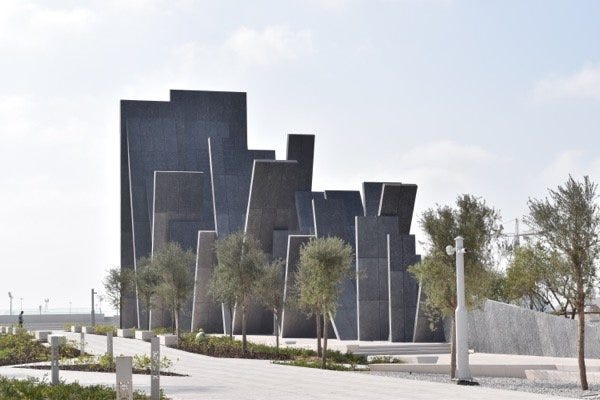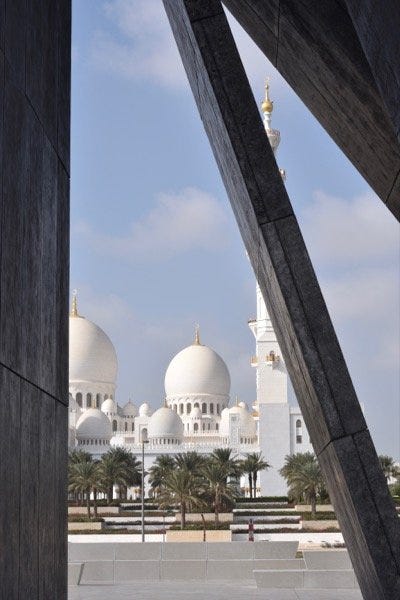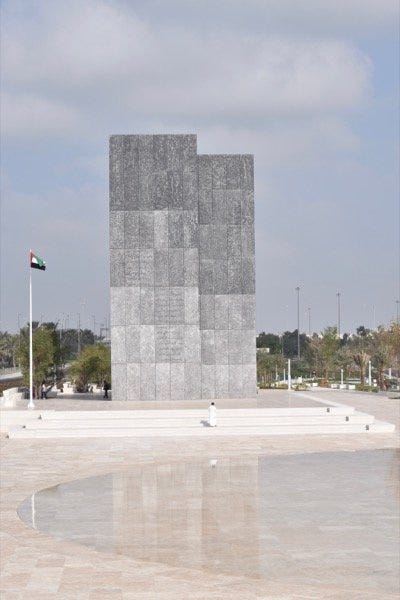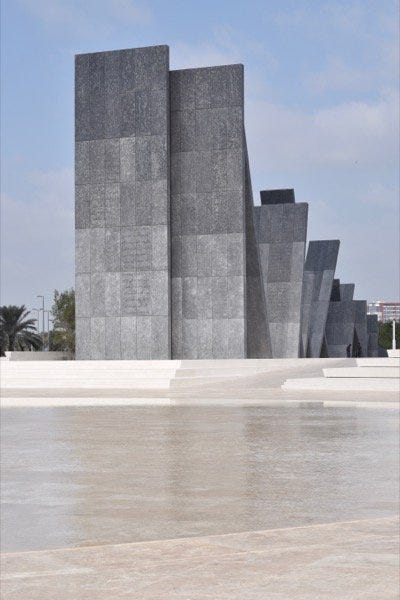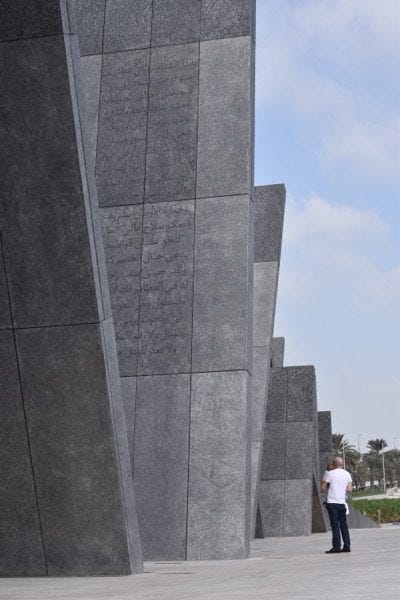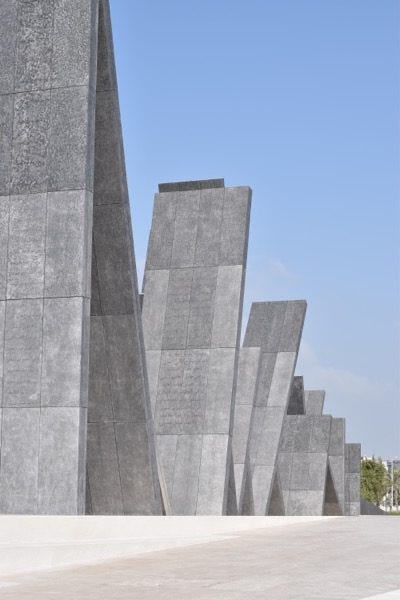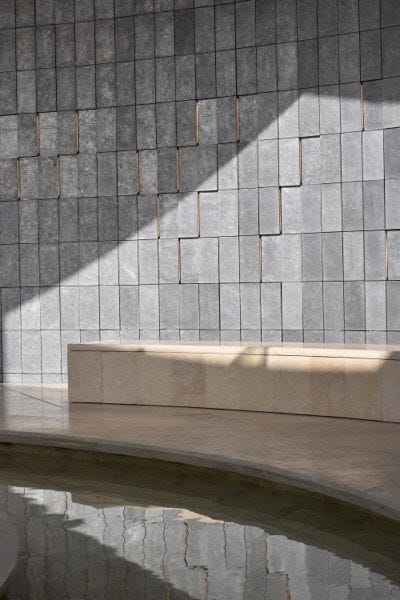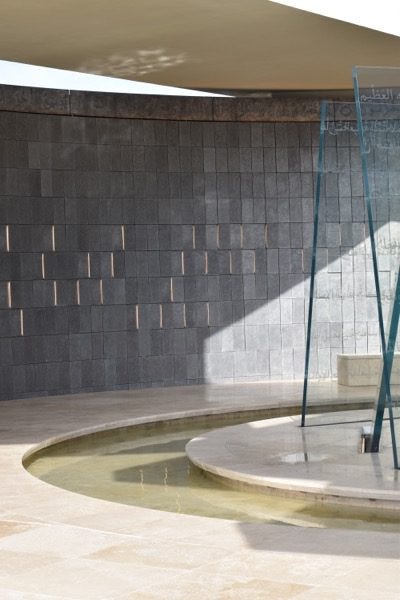Wahat Al Karama, Abu Dhabi
Towards the end of November 2016, in time for Martyr's Day on November 30th, Wahat Al Karama, a monument to honour the fallen heroes of the UAE opened in Abu Dhabi. From a vision to reality in just under a year, Wahat Al Karama honours all of the heroes in the UAE that have sacrificed themselves since the country's unification in 1971. A modern, bold, imposing and impressive permanent monument, I went along to get a better look.
Last updated: Feb 2019
The monument is strategically located in between the Ministry of Defence, the Sheikh Zayed Grand Mosque and Al Bateen Airport where the fallen heroes are returned to, a friendly tour guide tells us as we arrive on site. There is the option to have a wander around under your own steam, or to take a free tour starting from the visitor centre.
During the 30 minute tour, we learn about not only the reason behind the project and the logic for the 30th November being chosen as Martyr's Day (in fact, 30th November 1971, just before the unfication of the country was the date that marked the first loss, making Salem Suhail Khamis Al Dahmani the UAE's very first hero) but also about the building and design of the project, along with much of the meaning and symbolism the project represents.
The pool of reflection is a mere 15 millimetres deep, and can be drained and refilled again in just five minutes. The beautifully symbolic pool acts as a kind of centre piece to the project, but when drained leaves room for military ceremonies on pertinent occasions such as Martyr's Day itself. A terraced amphitheatre surrounding the pool also accommodates an audience of 1200 people.
It is also from here that the Sheikh Zayed Grand Mosque acts as a fitting backdrop, indeed with its own reflection being cast in the pool.
The monument itself comprises 31 aluminium-clad tablets each leaning on each other, symbolising unity and support and are inscribed with a series of poems and quotations from Sheikh Zayed bin Sultan Al Nahyan, the founding Father of the UAE and several other members of the Royal family.
Inspired by the traditional Falaj irrigation system, a channel of water runs under the panels and leads to the pool of infinity. The pool of infinity symbolises that life goes on, and that the memory of the heroes is infinite.
Further still, located at the end of the pathway is the Pavilion of Honour where each and every one of the UAE's heroes is named on an aluminium plate reclaimed from armoured vehicles used in the service of the UAE armed forces.
At the centre of the Pavilion lies seven glass panels, each representing one of the seven Emirates, and each inscribed with the UAE Pledge of Allegiance.
A visitor centre on site also provides more information about the monument, the charitable works of the UAE and an interactive display allows you to find out more about each of the fallen heroes. There are also a couple of lovely child friendly activities including a wax rubbing station to create a physical take home memory, and a build your own 'structure of support' station mimicking the design of the outside monument. All in all, it's a thoughtful exhibit and a beautifully symbolic monument to the fallen heroes of the UAE.
Wahat Al Karama is open to walk around 24 hours a day although the visitor's centre is opens from 9am to 7pm. Free guided tours are noted on the website as being held at 10am and 5pm though when we visited we found the guides were ready and keen to show visitors around more frequently than this.
A Guard's Ceremony also takes place every day at 5pm.
A large car park is located adjacent to the site, opposite the entrance to the Ritz Carlton Grand Canal Hotel and a pedestrian bridge crosses the busy road to provide access for those on foot who wish to visit both the Mosque and Wahat Al Karama.



